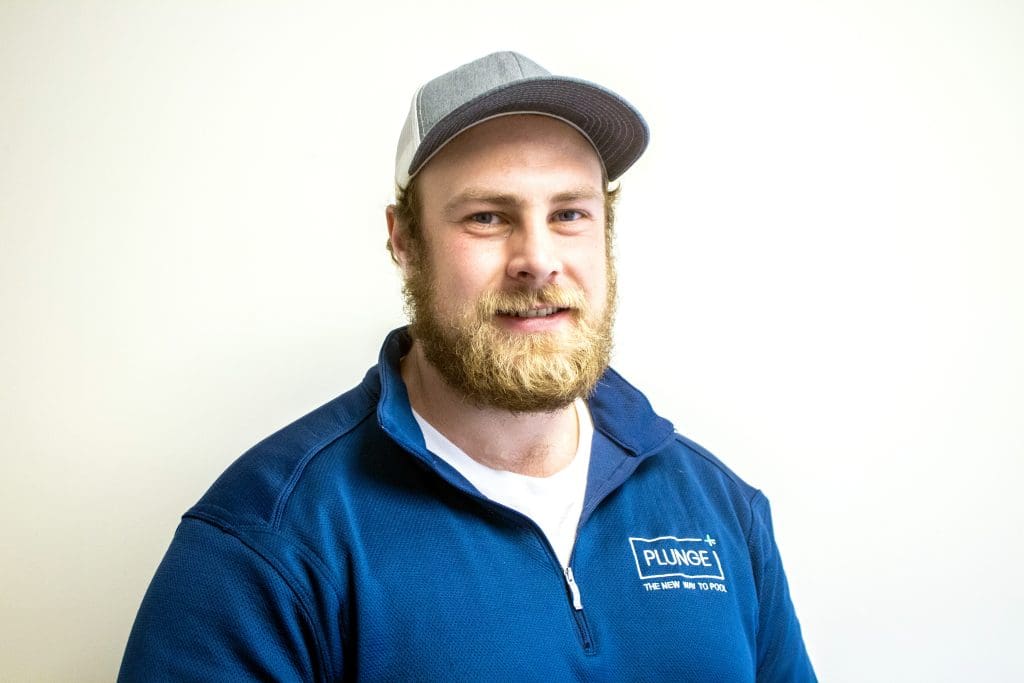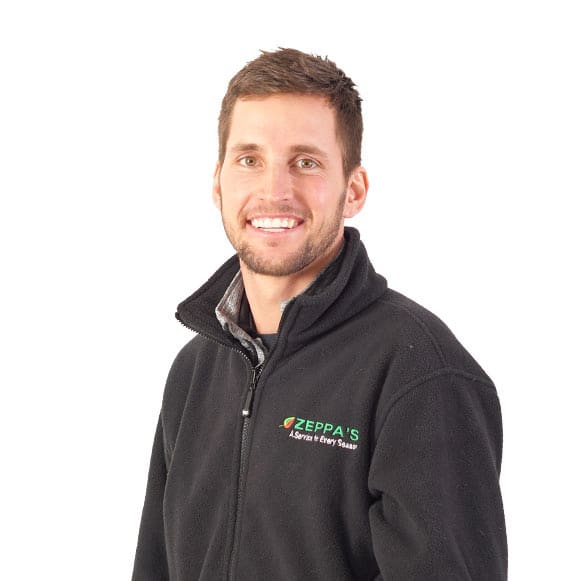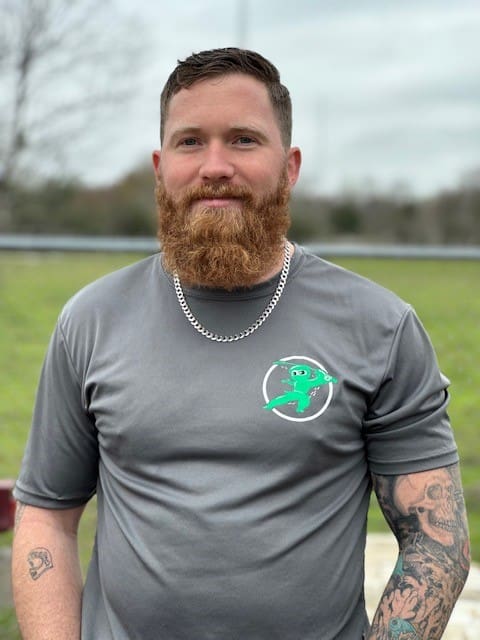
Some common threads you’ll often find in entrepreneurs’ stories are a desire to be their own boss and a background of starting side hustles from a young age.
For instance, Quinn Kampf, 26, owner of White Pine Landscaping, based in East Greenwich, Rhode Island, started his first business when he was six. He dabbled in other side gigs over the years until he started landscaping and knew he wanted to start his own company. While in college, he bought another student’s lawn maintenance accounts.
“I basically told him, ‘I don’t know how I’m going to do it, but you can’t sell this to anybody else. I got to buy it from you,’” Kampf says. “So I ended up borrowing a little bit of money from some family members for the tangible assets. He financed the intangibles and that was June of 2015. And then that was the start.”
Likewise, Antonio Zeppa, 33, CEO of Zeppa’s Landscaping Service, based in Louisville, Kentucky, grew up selling everything from lemonade to cornhole boards and refurbished golf balls before starting his landscape company in 2005.
Leigh McGonagle, 35, owner of Poplar Point Studio, based in Moravia, New York, grew up with parents who were both entrepreneurs, so conversations about business topics were regular. After working for a couple of big box stores, she knew that how they measured success was different from how she wanted to measure success.
“I knew I wanted to have my hands in the dirt,” McGonagle says. “I knew I wanted to be a business owner.”
Daniel Thompson, 31, owner of Landscaping Ninjas, based in College Station, Texas, says he was tired of the rat race, working as a mechanic doing oil changes. He started his business in 2017 after being inspired by some landscapers on YouTube. He quickly got involved in groups like NALP and was exposed to a world of entrepreneurs.
“The reality is you’re either born to be an entrepreneur or you’re meant to work for somebody,” Zeppa says.
Challenges and Lessons Learned
Despite starting their businesses at a young age, these entrepreneurs haven’t constantly faced people doubting their abilities. Thompson says a client might occasionally hesitate to entrust him with a $100,00 job, but it hasn’t been a huge issue.

Kampf believes this wasn’t an issue simply because he doesn’t look his age. Zeppa says in his case it was thanks to him faking it till he could make it. One instance of this was deciding to number his trucks starting at 11 and skipping every other number to give the appearance his fleet was larger than it was at the time.
Zeppa says the key to overcoming skepticism has been building a reputation of doing things the right way no matter what.
“That’s something that we’ve always prided ourselves on,” Zeppa says. “We’re human. We make mistakes, but we make it right every time as long as we know about it and we have the opportunity.”
McGonagle says she has faced people who are apprehensive based on her age and gender, but once she gets past the first five minutes of meeting someone, she’s gained their respect. She notes that there are fewer young female entrepreneurs for a number of reasons, including not feeling qualified and starting a family first before taking a risk.
“I was like, ‘What’s the worst that happens if I try this and it fails?’” McGonagle says. “I think most women don’t ask that question until they’ve already done enough to check the boxes to say, ‘Okay, if the worst thing happens, I’ll be okay.’”
The challenges these entrepreneurs have dealt with vary from person to person. McGonagle says her biggest challenge has been figuring out to balance the job so it’s not all-consuming. She says she often finds herself on a hamster wheel of perfection and high expectations of her own making.
McGonagle says she’s learned it’s better to try something and learn from it rather than ending up with analysis paralysis and not doing anything.
“You can always change what you’re doing,” she says. “You can always edit it. You can always tweak it, so doing a little bit in the right direction is what matters.”
Meanwhile, Zeppa says staying focused has been his greatest struggle, as he has multiple businesses requiring his attention. He says they’ve learned to dial in on their sole purpose to avoid getting bogged down with jobs they shouldn’t be doing.
Thompson’s challenge has been seeking people who have the same vision and will get behind that. He often sees contractors give up when they can’t find people who can support their vision.
“If you’re going to be an entrepreneur, you need to study leadership at an in-depth level because without leadership and without understanding what it takes to get people to follow you, you won’t get anywhere,” Thompson says.
Kampf says learning everything about the landscape business, from running a zero-turn mower to managing payroll and people, has been his main hurdle. As he’s run the business, he’s learned to adapt to changes and is working not to micromanage his people. Kampf says he’s also learned you can create the best system in the world, but it doesn’t do anything if people aren’t trained to implement it properly.
“I spend tens of thousands of dollars on the best equipment and if you don’t train people even on the best equipment out there, it just sits and becomes an expensive paperweight,” Kampf says.
Predictions for the Industry
All four entrepreneurs are optimistic about the future of the industry as consumer demand remains high.

“People as a whole, as a society, want to be outside more,” Thompson says. “They want to enjoy their yards more. You’re seeing water features getting super popular right now, koi ponds and all that stuff. I see nothing but growth in the future.”
They also predict increased technology acceptance and utilization from robotic mowers to AI. This shift to using more technology will be driven by a finite employee pool and a need to save time and labor.
“We won’t make it if we do what we’ve always done,” McGonagle says. “It’s just not going to work. So the nice thing is that the younger generation of business owners aren’t attached to the old way of doing things,” she says.
As for what they’d like to see change in the industry, both Zeppa and Kampf would like to see an increase in training where those entering the industry already have a level of skill they can provide.
“We’re making a really strong initiative to focus on training videos, and not just for ourselves, but we think that there’s an opportunity on a national level,” Zeppa says.
Thompson says he wants fewer companies low-balling and producing poor quality work, as it detracts from the professional landscape businesses that are committed to high standards.
“They’re coming in so low, it makes it hard to support an actual company that actually pays living wages and bonuses and health care and has these branded trucks and warranties all of their work like we do,” Thompson says.
McGonagle would like to see the landscape industry optimize its processes and systems so it can be 20 years ahead of other fields rather than behind. She adds she also wants to see more companies shake up the status quo and be innovative and think differently.
Standing Out From Others
Each of these companies opts to do things a little bit differently when it comes to their culture or operations. While Landscaping Ninjas does monthly or quarterly team outings like other landscape companies, Thompson says they also host an annual landscape Olympics at their shop where the crews have different games such as filling a wheelbarrow with potting soil, pushing it through a course and then making a planting arrangement.

“It’s low-key training because the planting arrangement has to look good also,” Thompson says. “You’re judged on more than one thing. You can’t just cram them in there and they look terrible because then you still won’t win.”
Zeppa says they implemented a morning roll call three years ago, which has helped tremendously with their attendance. He says public accountability is part of the reason everyone has started showing up on time. They also do a team stretch and share gratitudes and thank yous every morning. Everyone has to say something they’re grateful for or thank someone for helping or praise them for a job well done.
Kampf says they have become a dealership for pools so they can provide everything in-house and provide a better-quality product to clients. Likewise, McGonagle says they’re a long-term relationship service company, as they are subscription-based, not a transactionally-oriented service company. She says she runs the company more culturally, focusing on her people first.
Advice for Newcomers
For up-and-comers considering starting their own landscape business, McGonagle encourages them to do so and to determine their own definition of success.
“There’s no better way to learn than by doing it,” McGonagle says. “You will never learn all the things. You have to figure out what makes sense for you because a one-size-fits-all model isn’t actually how it works.”

Thompson says he’s currently trying to decide if he wants to have 20 $10 million locations eventually.
“The ultimate goal is to build a very healthy, very organized systemized business that can run whether I’m here or not,” Thompson says.
Zeppa says you can definitely make a good living in the industry, but it is not a get-rich fast operation, but something you have to grind at long-term.
“It’s really important that you focus on and stay in your lane and not really get hung up in what everybody else is doing,” Zeppa says.
McGonagle adds that the hard part of owning a business is not starting it but keeping it going. She says there are many resources available and people willing to help; you just have to ask. Kampf suggests learning from others and working for a successful business first.
“If I went to work for somebody else, I could have potentially scaled my business a lot quicker,” Kampf says. “If you’ve got the grit to do it, then do it on your own, but you’re going to learn a lot of hard lessons and lose a lot of money along the way.”
This article was published in the May/June issue of the magazine. To read more stories from The Edge magazine, click here to subscribe to the digital edition.

